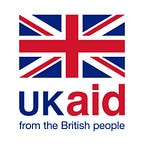Life after Ebola
Meet some of the survivors who defeated the disease that devastated families in Sierra Leone
I want to be a doctor. I want to save lives. ~ Celina
Celina Kamanda, 18
Celina’s mother became sick last year – but she didn’t believe it was Ebola. She thought it must be malaria.
Her mother died from the disease in December last year. Soon after, Celina became sick too.
She went to Hastings where she was tested and treated at a centre backed by UK aid. She was the only one of her family to go. Tragically, her father, brother and cousins remained, and also fell victim to Ebola.
Although the outbreak is nearing its end, Celina misses her family.
“I feel happy, but I’m not happy. I won’t be happy because I loved my parents.
“But I am happy that we will be free of this disease, and that I am the one who survived and can tell my story.”
Now Celina is back in school, which is helping her to move forward. “I like seeing my friends at school. It helps me forget about the past.”
“I would like to be a doctor. I want to save lives. When I was in the treatment centre, I saw people suffering. But I have passed through the experience, and now I want to be able to look after others.”
Isatu Bangura, 32
Isatu Bangura survived Ebola after receiving treatment in Hastings, near Freetown.
But tragically, she lost her mother, father and sister to the disease.
Now she is caring for her sister’s two orphaned children, alongside her own three kids. With the extra mouths to feed, she struggles to make ends meet.
As well as losing her family, Isatu lost her business: she had previously been a fishmonger in Magazine Wharf, but her tools and goods were destroyed as she was placed in quarantine: a necessary but devastating measure to help control the disease.
“So many people have lost their livelihoods,” says Isatu. “I have hope that the government will help.”
But Isatu is not focused on her own needs – she’s looking forward to the future for her kids. “The only thing I ask is for my children to be educated, so that one day, they can make it for themselves.”
As the country nears the end of the Ebola outbreak, Isatu looks back:
“We were suffering until the world turned its eyes to this problem. I’m happy that it’s nearly over, but I am sad because I lost my family.”
John Sesay, 30
John Sesay survived Ebola – but his family was devastated by the disease. He lost his mother, father, two sisters, uncle and auntie.
His auntie left behind two children, whom he now looks after alongside his own three kids.
“I am a survivor in my community and I want to speak out for the orphans left behind by Ebola.”
Before the outbreak, John was a fishmonger and had worked hard to save up some money for a rainy day. But the disease destroyed his business, and the small sum he did have was soon spent looking after the children in his care.
But he has not been defeated. “There will be life after Ebola,” he says. “But we need to learn from the outbreak to prevent it happening again.”
The UK led a huge international response to the Ebola crisis in Sierra Leone and will be there after the epidemic is over. We will support the Government of Sierra Leone in their work with survivors through medical advice, counselling and a longer term package of assistance to tackle stigma and help restore their livelihoods. The UK’s objective is to support the Government of Sierra Leone to end the current outbreak, and to maintain the vigilance and preparedness necessary to prevent any future outbreaks from growing into epidemics –maintaining a ‘resilient zero’. Find out more about the UK response to Ebola in Sierra Leone at https://www.gov.uk/government/news/the-end-of-ebola-in-sierra-leone.
Pictures and interviews: Simon Davis/Department for International Development
